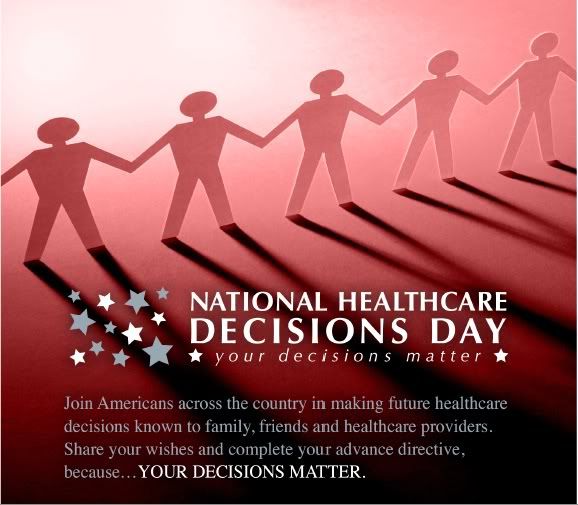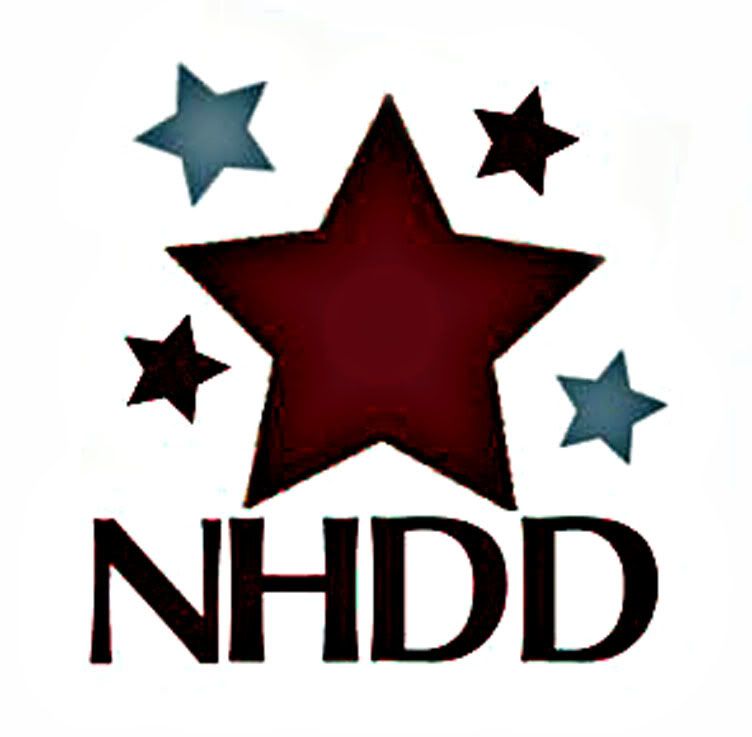華陀再世
一個中國醫學生(CMG)在美國的生活。。。April 16 is National Healthcare Decisions Day (NHDD).
中美文化差別極大,特別是在死的問題上。中國人忌諱談死,認為不吉利。但美國人卻常常把死掛在嘴上,不僅不怕死,而且對死亡和臨終問題還有計劃和遺囑。孰是孰非?我認為在處理死的問題上,還是美國人高人一籌。
" 'Would you like to discuss your end-of-life plans today?' I ask my patients this question, though not as often as I'd like. Talking about death may be uncomfortable, but it's a conversation that needs to happen more often." --Kevin Pho, MD.
Dr. Kevin Pho's assertion is one that may have been cause for pause for patients and families years ago. However, as people continue to become educated on the value of advance care planning through initiatives like National Healthcare Decisions Day (NHDD), it is a sentiment that is garnering the thought and consideration it deserves amongst medical professionals, patients and families.
And, with NHDD just one day away -- on Saturday, April 16th-- Pho has penned an incredibly timely piece on the subject. In his most recent column, published several days ago in USA Today -- Politics mustn’t silence end-of-life talks -- Pho expounds on the importance of advance care planning for a wide readership.
We hope this impactful op-ed will complement the many NHDD events across the nation and inspire people from all walks of life to not only 'have the talk,' but walk the walk by completing their advance directives.
Moved to complete your own advance directive or to help your loved ones engage in advance care planning? Check out tips on how to start the process in 'NHDD Blog Rally 2011' and take the NHDD 2011 Pledge featured in the website sidebar.
Get an Advance Directive
All adults can benefit from thinking about what their healthcare choices would be if they are unable to speak for themselves. These decisions can be written down in an advance directive so that others know what they are. Advance directives come in two main forms:
- A "healthcare power of attorney" (or "proxy" or "agent" or "surrogate") documents the person you select to be your voice for your healthcare decisions if you cannot speak for yourself.
- A "living will" documents what kinds of medical treatments you would or would not want at the end of life.
- AARP: End-of-Life Planning
- Advance Care Planning Day Initiative: Advance Care Planning
- Aging with Dignity: Five Wishes
- Amedisys: Discussion Guide for Advance Care Planning
- American Bar Association: Tool kit for Health Care Advance Planning; 10 Legal Myths about Advance Medical Directive
- American Health Lawyers Association: Guide to Legal Issues in Life Limiting Conditions; Loving Conversations (video) on Advance Care Planning
- American Hospital Association: Put It In Writing
- Caring Connections: Advance Care Planning; Financial Information; Planning Ahead Checklist; Free Brochures
- Center for Practical Bioethics: Caring Conversations Workbook
- Cancer.net: Advanced Cancer Care Planning Workbook
- National Association of Social Workers: Advance Care Planning and Psychiatric Advance Directives
MedicAlert Foundation
The MedicAlert Foundation offers emergency medical information and identification services including Do Not Resuscitate medical IDs and option to store advance directives for all 50 states.
The Will to Live Project
The Patients’ Rights Council
The Patients’ Rights Council offers a durable power of attorney document (in either multistate or state-specific versions) that expressly defines and prohibits euthanasia.




